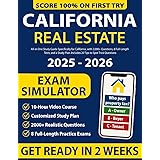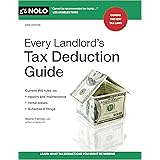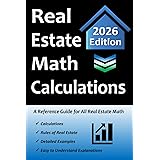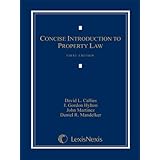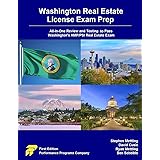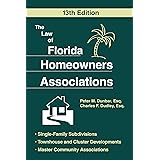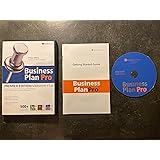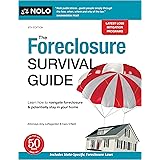The journey of buying or selling a home is often one of the most significant financial and emotional decisions an individual or family will make. As you’ve just heard in the video above, with over two million licensed real estate agents across the United States, finding the right professional to guide you through this complex process can feel overwhelming. Many fall into common traps, from choosing an agent based on personal connection rather than professional merit, to prioritizing the lowest commission or the highest promised sale price. These pitfalls can lead to significant stress, delays, and ultimately, a less favorable outcome.
Fortunately, by understanding the common mistakes and knowing what to look for, you can navigate the selection process with confidence. This guide expands on the valuable insights shared by Audra Lambert in the video, offering practical strategies and deeper dives into how to effectively choose the best real estate agent for your specific needs, ensuring you receive top-tier service and achieve your property goals.
Avoiding Common Pitfalls When Choosing a Real Estate Agent
One of the biggest mistakes many home buyers and sellers make when hiring a real estate agent is letting emotions or external pressures dictate their choice. It’s common to feel obligated to work with a family member who just got their license, or succumb to pressure from a friend or acquaintance who’s constantly soliciting your business. While loyalty and personal connections are valuable in many areas of life, they can be detrimental when it comes to a high-stakes real estate transaction.
The core issue here is that likeability and comfort, while pleasant, don’t necessarily equate to expertise, a strong track record, or fierce negotiation skills. Your real estate agent is a professional service provider, not just a friend. Their role is to represent your best interests, provide expert market analysis, strategically market your property, and skillfully negotiate on your behalf. Therefore, your decision should be rooted in careful research and objective evaluation of their qualifications, not merely on who you feel most comfortable having a beer with.
Another common pitfall is misunderstanding the nature of the agent-client relationship. As Audra highlights, some clients look for a “friendship-y” experience, expecting their agent to be a buddy who helps with repairs or just socializes. This mindset can divert attention from the agent’s primary professional responsibilities. When you’re looking for the best real estate agent, focus on their capacity to provide top-quality professional services that secure the best possible price and terms for you.
Beyond Price: Understanding True Market Value
Many home sellers, in particular, become fixated on finding the real estate agent who promises the highest listing price for their home. Similarly, buyers often seek an agent who vows to negotiate an unrealistic amount off a property’s asking price. This singular focus on price, while understandable, can be a major misstep.
The truth is, as Audra wisely points out, “the market’s going to bear what the market’s going to bear.” An agent cannot unilaterally demand a price; the market itself, driven by comparable sales (comps), current economic conditions, and buyer demand, ultimately dictates a property’s true value. An agent’s role is not to simply agree with your desired price, but to accurately assess the fair market value of your property and strategically price it to attract serious buyers.
The Danger of Overpricing Your Home
Hiring a real estate agent who inflates your listing price to “win” your business can lead to significant headaches. An overpriced home often sits on the market for extended periods, leading to buyer fatigue, reduced interest, and eventually, the need for price reductions. This prolonged process can be incredibly stressful, result in multiple failed escrows (as seen in Audra’s personal anecdote), and ultimately may force you to sell for less than what could have been achieved with an accurate initial pricing strategy.
A truly professional real estate agent understands the importance of market analysis. They will conduct a thorough comparative market analysis (CMA) using recent sales of similar properties in your area. In some cases, they might even recommend hiring an appraiser for an independent valuation. This meticulous approach ensures your home is priced competitively, attracting maximum interest and facilitating a swift, successful sale at or above fair market value.
Individual Agent vs. Team vs. Broker: What’s Right for You?
When searching for the best real estate agent, you’ll encounter various structures: individual agents, teams, and brokers. Each offers distinct advantages and disadvantages, and the ideal choice often depends on your specific needs and preferences.
Individual Real Estate Agents
Working with an individual agent often means direct, personalized communication. You build a one-on-one relationship, receiving feedback and customer service directly from the person you hired. This can be highly appealing for those who value consistency and a single point of contact throughout the transaction.
However, the downside is capacity. A single agent, especially a successful one, juggles multiple clients, showings, negotiations, and administrative tasks. If they fall ill, go on vacation, or have several complex deals simultaneously, their ability to provide consistent, timely support to every client might be stretched. It’s crucial to ask how they manage their workload and what backup systems they have in place.
Real Estate Teams
Real estate teams, like Audra’s, are structured to provide comprehensive support through specialized roles. One person might focus on listings, another on buyer representation, and administrative staff handle marketing and paperwork. The primary benefit is that you gain access to a collective pool of expertise and a built-in support system, ensuring that someone is always available to assist you.
The potential drawback, as noted, can be a less personal experience. You might not always communicate with the lead agent you initially interviewed, receiving updates from different team members. When interviewing a team, clarify who your main points of contact will be, who handles showings and open houses, and how their internal communication ensures a seamless experience for you.
Real Estate Brokers
The term “broker” can sometimes be confusing. A real estate agent typically works under a broker, who has passed a more extensive licensing exam and has additional responsibilities, such as managing other agents. While some brokers actively sell homes, others primarily focus on managing their brokerage and mentoring agents.
If you’re considering hiring a broker directly, it’s vital to ascertain their active involvement in sales. Some brokers might offer to assign you to one of their “newbies” or mentored agents. While this can provide a new agent with valuable experience, it also means the broker often receives a significant percentage (e.g., 30%) of that agent’s commission. If you’re paying a full-service commission, you should ensure you’re receiving the direct, hands-on experience of a seasoned professional, not inadvertently subsidizing a new agent’s training.
Red Flags to Watch For When Hiring a Real Estate Agent
The interview process is not just for asking questions; it’s also about observing. Pay close attention to how a prospective real estate agent interacts with you. Certain behaviors should raise immediate red flags.
Pressure Tactics and the “Car Salesman” Approach
Beware of agents who use high-pressure sales tactics. If an agent pushes you to sign an agreement on the spot, says things like, “Do you have any hesitations I can overcome right now so you’ll go with me?” or makes you feel uncomfortable, step back. This aggressive closing technique, while perhaps taught in older sales models, is often a turn-off and indicative of how they might handle negotiations with other parties in your transaction. A truly professional real estate agent will respect your decision-making process and provide all necessary information without coercion.
Lack of Transparency or Evasiveness
An ethical and experienced agent should be transparent about their process, fees, and potential challenges. If an agent is vague about their marketing strategy, unwilling to provide clear answers to your questions, or avoids discussing their commission structure openly, it’s a sign they might not be the best fit. You need to feel comfortable that the person representing you operates with integrity and has your best interests at heart.
Furthermore, ensure you fully understand any agreement before signing. Never feel pressured into signing a listing agreement or buyer’s agent agreement until you’ve read it thoroughly and are confident in its terms. A trustworthy agent will take the time to explain everything to your satisfaction.
The Commission Conundrum: Value Over Cheapest Price
In today’s evolving real estate landscape, discussions around commissions are prevalent, and many naturally seek the lowest possible commission rate. While negotiating commissions is a valid part of the process, fixating solely on finding the “cheapest” real estate agent can be a significant miscalculation.
As Audra effectively illustrates with her own success story, a higher commission often translates to superior service and a greater return on your investment. An agent who charges a competitive, rather than bottom-of-the-barrel, commission is typically able to invest more into marketing your property. This includes professional photography, virtual tours, staging services, pre-listing home inspections, and minor repairs – all designed to present your home in its best light and attract premium offers.
Consider Audra’s experience: by investing in an inspection, appraisal, staging, and minor repairs, she secured $65,000 over market value for her client and negotiated a deal with no further repairs needed. This significant increase far outweighed the cost of her commission, demonstrating that the “cheaper” agent might save you a percentage point on commission but potentially cost you tens of thousands in lost sale price or unexpected repair costs.
The goal is not just to save money on commission, but to maximize your net profit from the sale or secure the best terms on a purchase. A skilled real estate agent with a robust service offering can often negotiate more favorable terms and a higher price that more than compensates for their fee. Always ask what services are included in their commission and how they plan to justify their value through tangible results.
Your Due Diligence: Vetting Potential Real Estate Agents
Finding the best real estate agent requires proactive research. Here’s how to conduct thorough due diligence:
Online Research and Performance Tracking
- Google Search: Start with a simple Google search of the agent’s name. Look for their professional website, social media presence, and any news articles or reviews. A strong online presence often indicates a proactive approach to marketing.
- Zillow/Realtor.com Profiles: These platforms are invaluable. Search for the agent’s name on Zillow (e.g., “Audra Lambert Zillow”). Look for their sales history – how many homes have they sold recently? What types of properties? Pay close attention to the quality of their past listings: Are the photos professional? Are the descriptions compelling? Also, read client reviews carefully. Look for consistent themes regarding communication, negotiation skills, and market knowledge. A lack of a Zillow profile for a full-time agent is a significant red flag.
- MLS Data (Indirectly): While you can’t directly access the Multiple Listing Service (MLS), the data on Zillow and Realtor.com often pulls from it. Your potential agent should be able to provide recent comparable sales directly from the MLS, giving you a clearer picture of market activity.
Check Credentials and Licensing
Every state has a real estate regulatory body (e.g., California Department of Real Estate). It is crucial to visit their website and verify that any prospective real estate agent’s license is active and in good standing. You would be surprised how many agents let their licenses lapse due to missed tests or unpaid dues. An inactive license means they cannot legally represent you.
Request and Contact References
Just as you’d ask for references in a job interview, request a list of past clients from any agent you’re considering. When you call these references, ask specific questions:
- What was their experience like throughout the entire process?
- How well did the agent communicate?
- Were there any unexpected challenges, and how did the agent handle them?
- Would they hire this agent again?
These conversations can provide invaluable insights into an agent’s real-world performance and client satisfaction.
Mastering the Interview Process
When interviewing prospective real estate agents, it’s not just about asking questions from a prepared list; it’s also about observing their style and communication. Pay attention to their body language and how they explain complex real estate concepts. Can they simplify the process for you to easily understand, or do they speak in jargon that leaves you feeling confused?
Ask them to walk you through the entire buying or selling process, step-by-step, from signing the contract to closing. A good agent will be able to articulate this clearly, giving you a roadmap for what to expect. This demonstrates their command of the process and their ability to guide you effectively.
Trust Your Gut Feeling (Backed by Research)
After all the research, interviews, and reference checks, your gut feeling plays a crucial role. You need to feel a genuine sense of trust and confidence in the real estate agent you choose. This person will be your advocate and guide through what can be a stressful time, so a comfortable professional rapport is essential. If something feels off, don’t ignore it. Keep interviewing until you find the right fit.
Making an informed decision about hiring a real estate agent is paramount. By taking emotions out of the equation, focusing on professional service over superficial charm, critically evaluating their pricing strategies, understanding team structures, and thoroughly vetting their credentials and track record, you significantly increase your chances of a smooth, successful, and financially rewarding real estate transaction.


